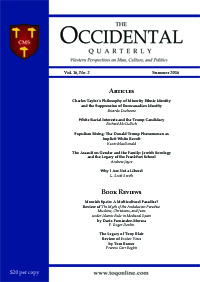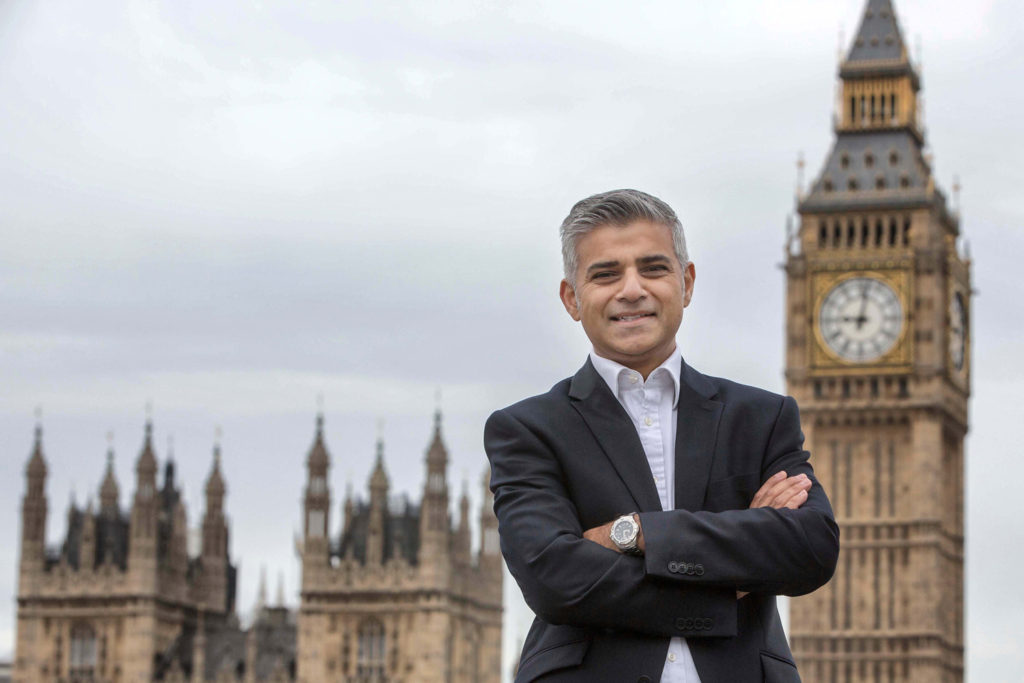![Rj]g](https://www.theoccidentalobserver.net/wp-content/uploads/2016/06/Rjg.jpg)
Originally posted June 6, 2016
In 2005, Andrew Fraser, then Associate Professor of Public Law at Macquarie University in Sydney, wrote a letter to his local newspaper warning that “experience practically everywhere in the world tells us that an expanding black population is a sure-fire recipe for increases in crime, violence and a wide range of other social problems.” Following publication, Jewish lawyers George Newhouse, David Knoll (then president of the New South Wales Jewish Board of Deputies) and Anna Katzmann submitted a complaint to Australia’s Human Rights Commission on behalf of the General Secretary of the Sudanese Darfurian Union. They argued that Fraser had breached Section 18C of Australia’s Racial Discrimination Act and demanded he publish an acknowledgement that he had engaged in “unlawful conduct” and unreservedly apologize “for the hurt thereby caused to the Sudanese people who live in the Parramatta-Blacktown area, promising not to repeat such conduct and retracting on the public record all of the imputations.”
I previously discussed Australia’s notorious Section 18C (and its Jewish ethno-political origins) regarding the case brought against the conservative commentator Andrew Bolt. I also described how, in 2014, former Australian Prime Minister Tony Abbott abandoned an election pledge to repeal this totalitarian speech code after coming under sustained attack from Jewish activist organizations. The veteran Jewish journalist Michael Gawenda observed at the time how: “The repeal of section 18C was vigorously opposed by the leadership of virtually every ethnic community in the country. But it would be fair to say — without wishing to give succor to those who reckon the Jews are too powerful — that Jewish community leaders have played a crucial role in organizing the opposition to any potential change to the RDA. It is the opposition of the Jewish communal leaders that had been of major concern to [Attorney General] Brandis and, to a significant extent, Tony Abbott.”
The complaint against Professor Fraser was upheld by the President of the Human Rights and Equal Opportunity Commission. In responding to the ruling, and noting how Whites are regularly deprecated in the mainstream media and held collectively responsible for crimes against Australia’s Aborigines and others, Fraser observed that: “Apparently, in contemporary Australia, people of White, European ancestry can be identified routinely as the root of all evil while it is forbidden for Whites ever to mention publicly the social pathologies associated with black Africans, even if they are well-known to any informed person and openly acknowledged by reasonable black people themselves.”
The reckoning
A decade after his ominous warning on the dangers of African immigration, Fraser has, not surprisingly, been totally vindicated. The country is in the grip of an African crime plague that has shocked people in its scale and savagery. While African gang violence has been a problem for many years, news of its horrifying extent has been routinely suppressed by politicians and the mainstream media. In March, however, this studied silence was shattered when members of the Sudanese-based “Apex” gang were responsible for a vicious riot which left the streets of Melbourne completely trashed. The riots broke out when “About 200 youths of the Apex and Islander 23 gangs stormed Federation Square chanting ‘fuck the police,’ before gang members started beating and punching each other.” During the riots, “People dining in City Square ran for their lives as gang members used cafe chairs as weapons, running riot from Federation Square to City Square.”
Occurring in the middle of Melbourne’s annual Moomba Festival, this very public and extremely violent riot was impossible to suppress or downplay. News Limited was forced to admit that “South Central Melbourne became more like South Central Los Angeles on Saturday as rioters swept through the CBD terrifying locals and tourists alike.”

The Apex gang was originally founded by Sudanese youths in the south-eastern Melbourne suburb of Dandenong. It quickly metastasized to include young people from Pacific Islander and Middle Eastern backgrounds. As a direct result of Australia’s disastrous Jewish-engineered immigration and refugee policies, this “ethnically diverse” suburb now has crime rates about 40 percent higher than the rapidly climbing Victorian state average.
Nevertheless, according to Mark Dreyfus, the Jewish Federal Labor MP who represents the area (but lives far away in a wealthy Jewish inner-city enclave): “Our community is a wonderful example to others of a modern, diverse, and harmonious society.” This is despite the fact that, following a wave of assaults, stabbings and street brawls involving “youths” in the suburb, police warned residents that: “If you see a large group approaching, get back in your car and go, or walk off — don’t hang around to see what they might do.” Recently two African men armed with knuckle dusters were responsible for three vicious attacks in this “modern, diverse and harmonious society.” In one of the attacks, “without saying a word they punched the victim in the face and head, and stole his mobile phone and an amount of cash.”
Dandenong was recently identified as one of Melbourne’s “crime hot spots” where a web of closed-circuit television cameras will be installed “to crack down on the violent Apex gang, which has been terrorizing the city.” According to the Herald-Sun, “The sophisticated security measures have been in response to a rising tide of violence blamed on the Apex gang, which has been involved in violent carjackings, serious assaults, and home invasions.” Crimes that were once extremely rare in Australia have become daily occurrences. Crime reporter Andrew Rule recently noted that: “A decade ago “carjacking” was something we heard about from South Africa, Miami and Beirut. Now it’s part of the conversation in Australia. The first time I can recall the phrase being used locally it involved young men ‘of African appearance’ forcing female drivers out of cars around Flemington, Carlton and Parkville. Not that anyone said much. It was too sensitive.”

Dandenong: “a wonderful example of a modern, diverse and harmonious society”
African gangs have gone on violent, drug and alcohol-fuelled rampages through Melbourne’s once genteel suburbs, aided and abetted by an insipid, politically correct governmental and legal establishment, and a clique of leftwing apologists in the media and academia. Recently, two Apex gang members escaped criminal convictions “after bashing an elderly couple in their beds during a brutal home invasion.” The victims, aged in their 70s, were left “left deeply traumatized after waking to find the young armed intruders in their house” and were “assaulted with weapons during the onslaught.”
Another victim was woken and beaten with golf clubs, while victims of another invaded home were “subjected to demeaning behavior of a sexual nature.” A carjacking victim was repeatedly threatened with being slashed with a knife despite handing over his car, and in a “brazen public attack,” a 16-year-old gang member used a box-cutter to slash the torso of a teenager who refused to hand over his phone on a train. Police have expressed concerns “about attackers taking ‘pleasure’ in bashing victims.” One police officer observed that: “Drugs or money aren’t the driver. It’s purely for the fun. They’re getting off on humiliating their victims.”
In the western suburbs of Sydney a 14 year-old girl was gang raped by up to six African men. One of the perpetrators, a 16-year-old, “claimed to be a member of Blackdanna, a self-proclaimed ‘alliance of all niggas’ in the Blacktown area who share photos of drugs, knives and graffiti online and wear black bandannas.” In another case, a 21 year-old Sudanese refugee embarked on “a three-day rape spree and sliced an elderly woman’s throat” just one month after arriving in Australia. He rewarded Australia’s generosity by immediately setting out “on a drug and alcohol-fuelled campaign of terror on the streets of Dandenong” which included “a string of depraved sex attacks.”
Three Sudanese youths who raped a young mother in her Victorian country home as her children slept in another room “sat whispering and giggling among themselves” as they were sentenced by a magistrate to just 36-month terms in juvenile detention for what the magistrate called “a cruel, callous and degrading attack on a vulnerable young mother for their own sexual gratification.” Another Sudanese refugee claimed diminished responsibility for the “horrific” aggravated rape of a 17 year-old girl when he was just 13, which was followed up with a string of violent crimes and serious traffic offences over the next six years. His lawyer said he could not be held fully responsible for his crimes because of an “intellectual disability and a severe behavioral disorder.” Given that the Sudanese mean IQ is 71, this defense would apply to virtually every Sudanese defendant.
Increasingly, victims of this African crime plague are circumventing the media blackout by reporting their experiences directly on social media. After a man was assaulted with baseball bats and robbed of his Mercedes in broad daylight by a group of African youths (who later used it in a violent home invasion), it only made headlines because the driver went public. Andrew Rule notes that:
All over town, (non-ABC) radio station switchboards jammed as people called in to tell chilling tales of similar incidents. Of houses being broken into and car keys taken by violent young thugs with no respect for anybody, let alone watered-down Australian laws made toothless by overcrowded jails caused, ironically, by migrant intake outstripping our fragile infrastructure. This was a wake-up from the real world, the one mostly ignored by the myopic civil libertarians of the cardigan Left. Until, of course, the day comes when they, too, become victims of the latest wave of barbarians at the gate.
A Melbourne mother-of-two was killed in November last year after a Sudanese teenager, high on drugs, crashed a stolen car into her while driving on the wrong side of the road after “an out-of-control suburban rampage of carjackings, armed robberies and aggravated burglaries.” The Herald-Sun noted that three high-powered cars were passed between African youths “as they left a trail of traumatized victims across six suburbs.” For taking the life of this woman, the Sudanese refugee, Isaac Gatkuoth, was handed a pathetic 14 month prison sentence. According to police, such crimes now “were typical of a new breed of thugs swept up in gangster culture.” This “gangster culture” has, it should be noted, been overwhelmingly promoted and spread around the world by the Jews that dominate Hollywood. Victoria Police Chief Commissioner Graham Ashton recently dubbed it the “Grand Theft Auto generation,” when attempting to explain yet another surge in Victoria’s crime rates, which included double-digit rises in car thefts, burglary, drug and weapons offences.

Isaac Gatkuoth: enriching Australia with death
These predatory gangs of African youths have also targeted international students from China who are prime targets because they often have “the latest in technology, which can be traded for good money to buy drugs,” and are unlikely to fight back when stood over for their property. In April a group of Chinese students were among the victims of “a citywide rampage” by African youths who raided their townhouse. One of the students was woken by punches in the face by the assailants, some of whom were armed with hammers. A victim recalled that “One or two of them had weapons — hammers. I don’t want to die, I thought about that. I’ve got no idea why they picked here. I now think Australia’s not a safe place. I thought it was safe before, but not now.’’ Groups of up to 20 teens and young men have for months “been terrorising students around the University of Melbourne precinct and other parts of the inner-city in after-dark ambushes.”
As well as terrorizing Whites and Asians, African-on-African crime in Australia has also become a huge problem. The eruption of extreme violence within the Sudanese community, or between Sudanese and Somali youths, is a frequent occurrence. In one case “young Sudanese immigrants in Melbourne engaged in deplorable acts of violence including the use of machetes — a weapon still associated with the horrific scenes of the Rwandan genocide — after a beauty pageant held in Springvale, southeast of that city.” Last year the Salvation Army accused Victoria’s police of covering up a violent New Year’s Eve brawl between more than 200 African youths in Melbourne’s CBD. Police did not issue a media release on the brawl and no media outlet reported it.
Melbourne’s Herald-Sun recently revealed that even once apprehended by police, African offenders “are bashing staff and other inmates amid growing tensions between gangs at teen detention centers … where assault rates have climbed by 46 percent.” Andrew Rule, in response to the desperate efforts of the leftist media elite to suppress news of, or make apologies for, the horrifying extent of African gang violence, affirms that we should not pretend that “the rising wave (a statistical fact, not a rhetorical flourish) of violent ethnic gangs in Melbourne and Sydney are as harmless as the conga line of apologists, sycophants, ‘doctors’ wives’ and naive young lawyers who turn themselves inside out to cover for them. … The Moomba riots have highlighted a rise in gang crime that has been allowed to gather strength far too long. Police have talked privately for years of its poisonous effects. Now that particular chicken has come home to roost and it’s the size of an ostrich.”
Conservative commentator Andrew Bolt recently observed that “This level of mass violence — like the terrorism threats and the shootings in Melbourne’s north and Sydney’s west — is relatively new to Australia and demands an explanation.” Decrying the police and media cover-up, he notes how most media reporting of the Apex gang has “studiously avoid mentioning one of the most important things about it — that it is made up predominantly of Africans who are refugees or the children of refugees,” and how there seems to be “a conspiracy to stop the public knowing that our refugee and immigration policies have become a threat, introducing new levels of violence and gun crime to our cities.” This stubborn refusal by the Leftist media elite to be honest “is misleading readers and leaving them unable to conclude the nature of the threat to public safety.”
While Bolt’s observations are entirely valid, he is also guilty of misleading his readers and leaving them “unable to conclude the nature of the threat to public safety.” This is because Bolt (at least publically) denies the reality of racial differences and ascribes the dysfunctional behaviour of Africans, Pacific Islanders and Arabs solely to cultural differences — rather than to empirically-measurable differences in traits like intelligence, aggression, and impulse control. The problem for Bolt is simply that Australia is taking in “people from war zones who have a martial culture, few employable skills, and very different religious and cultural values.” For Bolt, if these criminal youths could only be made to embrace Western values they would become fully functional and productive members of society.
Of course, the reality is that no amount of taxpayer money or values education can remedy an African mean IQ deficit of two standard deviations compared to White Australians. Like Australia’s aborigines, African migrants will, with rare exceptions, inevitably impose a lifelong burden on Australia’s welfare and criminal justice systems. This was Andrew Fraser’s essential point back in 2005. In Part 2 of this essay I examine the Jewish role in shaping Australia’s current refugee policies and in creating the Frankenstein’s monster that is today’s multicultural Australia.
Go to Part 2 of 3.


![Rj]g](https://www.theoccidentalobserver.net/wp-content/uploads/2016/06/Rjg.jpg)








